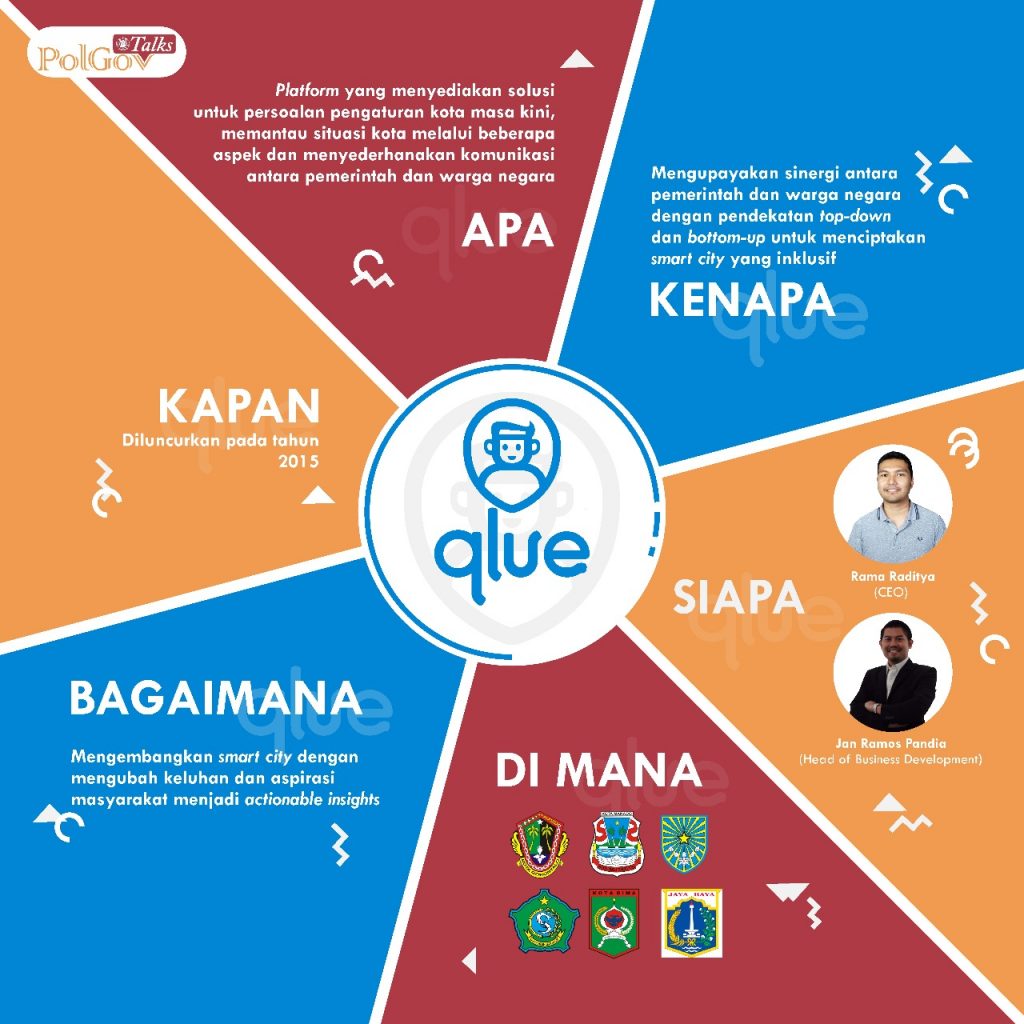Yogyakarta, March 7, 2018. The Third Series of PolGov Talks will be held by the Department of Politics and Government (DPP) FISIPOL UGM on Friday, March 9, 2018, starting at 09:30 WIB at Seminar Room FISIPOL UGM Yogyakarta, with speaker Jan Ramos Pandia, Head of Business Development – QLUE, one of the public digital service platforms in Indonesia.
This third series of PolGov Talks brings “Technology, Public Service and Participation: QLUE Experience in Indonesia” as its theme in which will explore the basic idea behind QLUE innovation in encouraging public participation in improving the quality of public services.
“The main objective of PolGov Talks invites Jan Ramos Pandia from QLUE is to provide an overview of how technology-based innovation, QLUE with its smart city, succeeded in improving the quality of service, performance of government apparatus, and authentic citizen participation”said Dr. Amalinda Savirani, MA., Head of Political and Governmental Department FISIPOL UGM.
“Students and the other participants will learn a lot from the QLUE experience, about first, how central the role of technology-based applications in improving service quality. Second, how technology can not walk alone without humans in it.”added this woman who initiated the idea of Polgov Talks.
“To be effective, technology-based services require strong leaders, who believe in the importance of committed apparatus and citizens continuing to monitor, in the governance process.” added the woman who has been leading the UGM Department of Politics and Government for the last two years.
PolGov Talks series was held because DPP FISIPOL UGM realized that university as highest education institutions need to continue to facilitate their graduates in order to have benefits for the surrounding community while still be an economically independent man.
In addition, this “PolGov Talks” lecture series is a learning methods that are not only in the classroom, but sit together with the speakers from outside the campus. All of them are an effort in to facilitate the younger generation, especially the graduates of Higher Education, in order to have agile character (intelligent, adaptive, and innovative).

